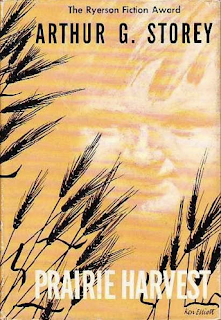A follow-up to last month's post on Joan Walker's Repent at Leisure.
Joan Walker
The Star Weekly, 5 October 1957
The Star Weekly would like the reader to know that Joan Walker's Repent at Leisure is an award-winning novel.
 |
| 27 June 1944 |
While I'm sure it's possible to publish a 94,000-word novel in fourteen tabloid-sized pages, I very much doubt it could be read with the naked eye.
How was it done? Cut the first two chapters to start.
This Repent at Leisure begins shortly after Veronica's arrival in Canada. There's nothing of her relationship with her parents, their concerns over her hasty marriage, or the descriptions of post-war air travel that this reader found so interesting. It opens instead with our heroine sitting, waiting her turn to meet with a customs officer.
Other cuts aren't as glaring, but they are obvious. I had some fun in comparing the two versions. This is the Ryerson version with the words cut in the Star Weekly struck out:
I like this scene because the Westmount Nash family come off as snobs of the highest order, which I'm certain wasn't the author's intent. They also seem so very English -– more so than the immigrant who has just arrived from London. Gone is the awkward and unnatural dialogue about the "Indian village Cartier found in fifteen-something on his first trip up the St. Lawrence;" which shouldn't have made it past Ryeson's editor.
The most interesting thing in comparing the two came in the discovery of additions made to the condensed version. Alan smokes whilst poring over the map in the Star Weekly edition. Margaret suggests that he's found only one Giroux Street because his map isn't up-to-date. Jane hands Veronica a cup of tea and a pink linen napkin.
All minor changes, but mysterious given that the task at hand. And who did that task? Was it the author herself? The copyright notice suggests as much.
Might it be that the added bits are things the editor at Ryerson cut?
All this begs the question: Whatever happened to Joan Walker's papers?






















































